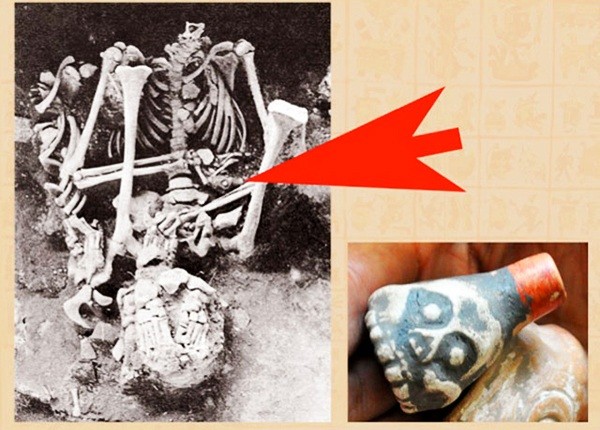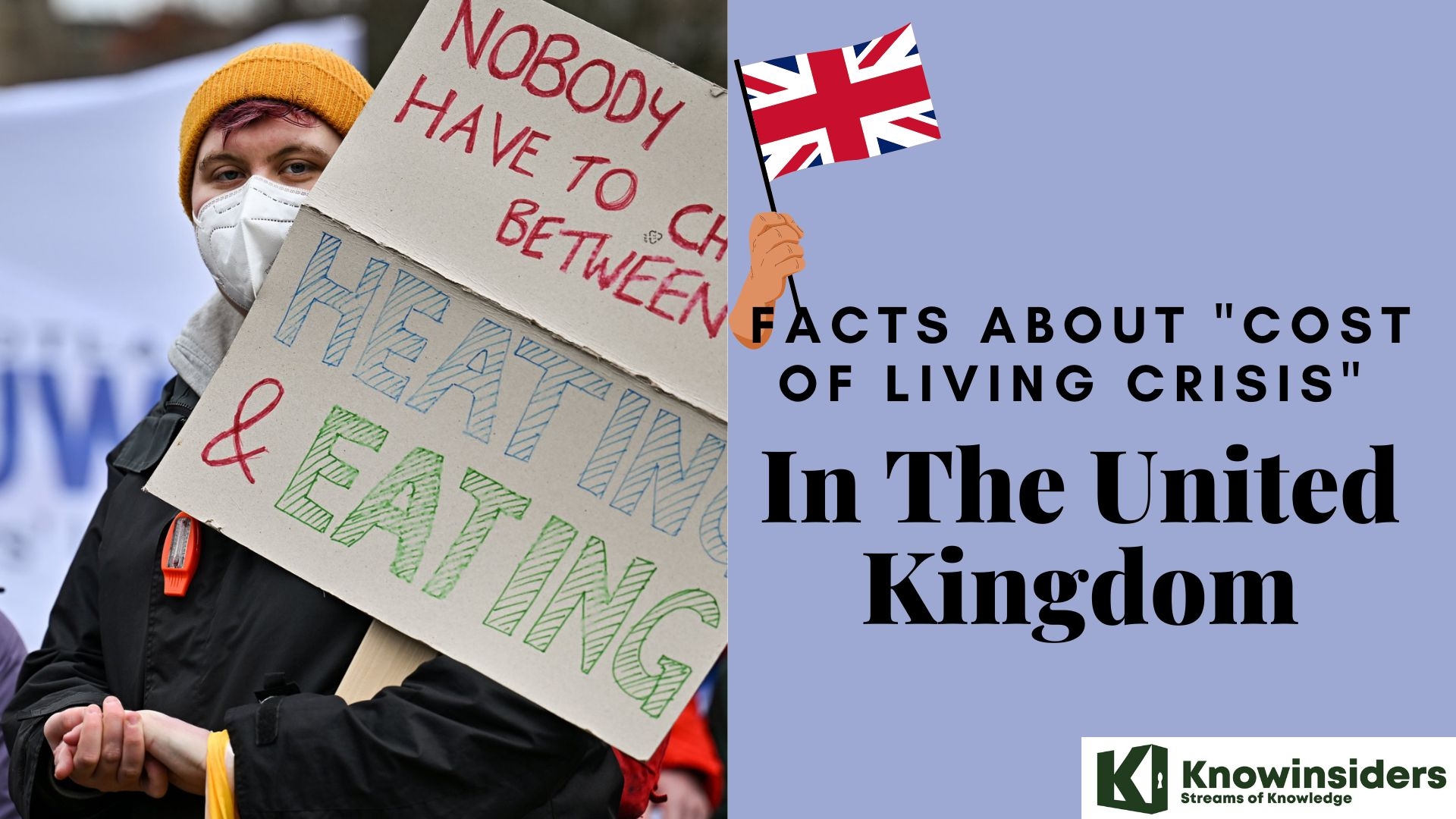How to Join Communist Party of China?
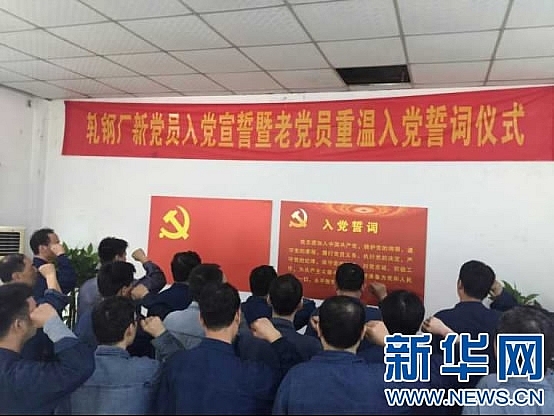 |
| How to Join Communist Party of China |
Communist Party of China - Quick Facts
*The Communist Party of China (CPC) has grown steadily in recent years, up 688,000 members in 2016 alone to hit a total membership of 89,447,000 by the end of the year. Since its founding 100 years ago, China’s ruling party now has almost 92 million members
*Almost 5 million local-level party organisations pervade every aspect of Chinese society, from villages and schools to private companies.
*As the party celebrates its one hundredth anniversary in 2021, it faces a raft of challenges, including slow economic growth, environmental degradation, and tensions with the United States.
*Every five years, the CCP convenes its National Party Congress to set major policies and select top leaders. During this time, members choose the Central Committee, which comprises around 370 members and alternates including ministers, senior regulatory officials, provincial leaders, and military officers.
*The Central Committee acts as a sort of board of directors for the CCP, and its mandate is to select the Politburo, which has twenty-five members. In turn, the Politburo elects through backroom negotiations the Politburo Standing Committee, which functions as the epicenter of the CCP’s power and leadership. The Standing Committee currently has seven members, but membership has ranged from five to nine people.
Jackie Chan keen on joining Communist Party of China
Hong Kong-based Hollywood action movie star Jackie Chan, who had earlier been criticised for supporting China’s crackdown on pro-democracy protests in the former British colony, has expressed willingness to join the ruling Communist Party of China (CPC).
The 67-year-old actor expressed his desire to join the CPC at a symposium held last week, where Chinese film insiders had shared their thoughts on the keynote speech delivered by President Xi Jinping on July 1 at the centenary celebrations of the party.
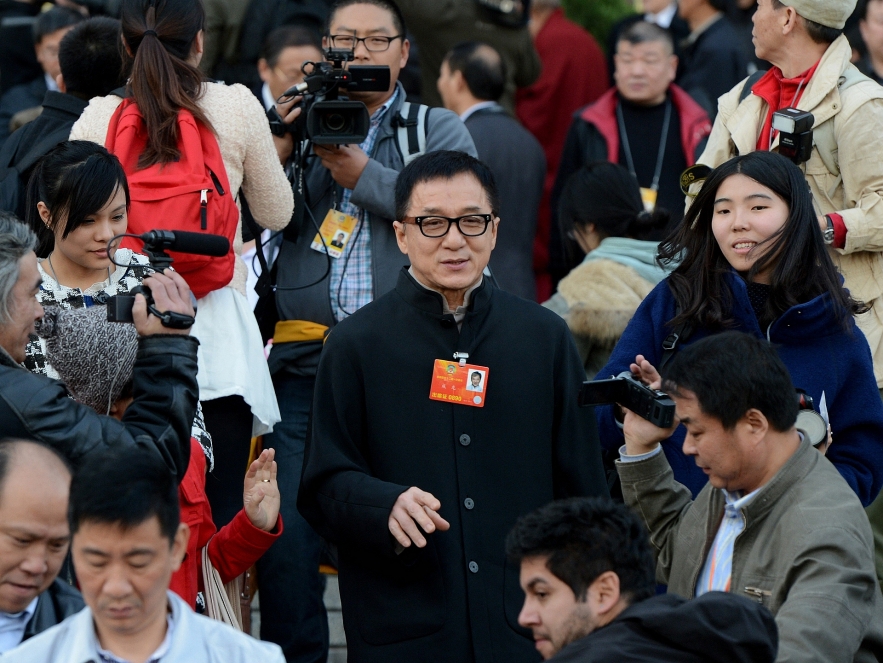 |
| Jackie Chan Wants to Join Communist Party |
At the symposium, Jackie Chan, who is also the vice-chairman of the China Film Association, spoke about his interest to join the CPC.
“I can see the greatness of the CPC, and it will deliver what it says, and what it promises in less than 100 years, but only a few decades,” Chan said.
“I want to become a CPC member,” he added.
However, his comments were quickly met with mockery on Weibo, with users saying he’s unworthy of party membership.
The 67-year-old is a member of the Chinese People’s Political Consultative Conference, a legislative advisory body in Beijing that is largely made up of members of the Communist Party.
Who are the members of Communist Party of China?
Citizens of all walks of life are eligible to join the Party, regardless of their socio-economic status, ethnic background, or gender. While the party used to represent mainly the three revolutionary classes – workers, farmers and soldiers – it has attracted more intellectuals, professionals and entrepreneurs since the beginning of this century.
By the end of 2016, 45.9 percent of members held junior college degrees or above, 25.7 percent were women, and seven percent were ethnic minorities, CGTN reports.
Aspiring members must fulfill certain conditions, including being over 18, accepting the Party's Constitution, being willing to join a CPC organization and its activities, and implementing the Party's decisions.
According to SCMP, From 2007 to 2019, the share of blue-collar and rural workers in the party fell from 41.5 per cent to 34.8 per cent, while the proportion of managers and professionals increased from 22.4 per cent to 26.7 per cent, according to the organisation department. An education ministry survey conducted at 140 universities in 15 provinces in 2011 found that 80 per cent of 250,000 students polled wanted to join the party.
In the private sector, companies including internet giants Baidu and Didi Chuxing have advertised high-paying roles requiring Communist Party membership to take charge of “party-building” activities.
Party members include well-known business leaders such as Lenovo founder Liu Chuanzhi, China Evergrande’s Xu Jiayin and Jack Ma Yun, founder of e-commerce giant and the South China Morning Post’s parent company Alibaba Group Holding.
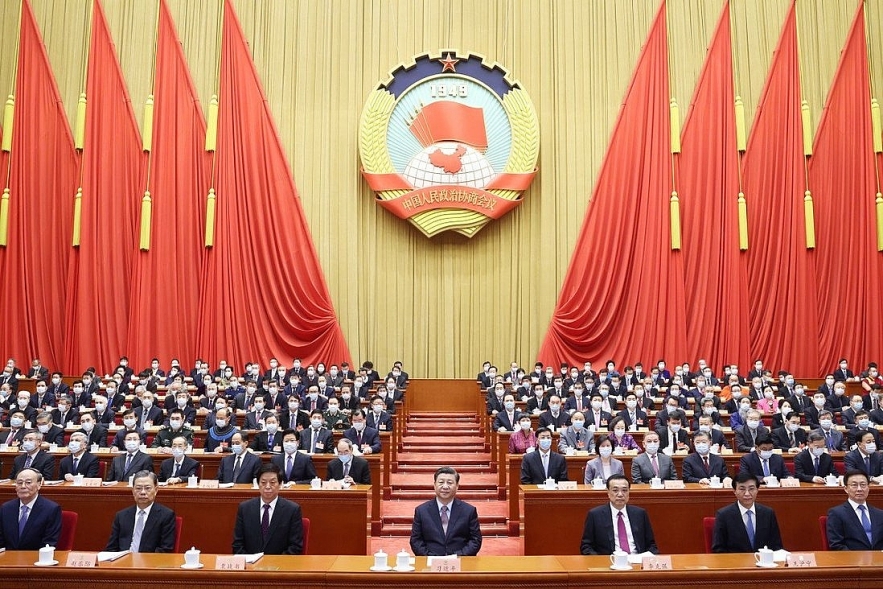 |
| The fourth session of the 13th National Committee of the Chinese People's Political Consultative Conference (CPPCC) opens at the Great Hall of the People in Beijing, capital of China, March 4, 2021. Photo: Xinhua |
What is the process for joining Communist Party of China?
Want to join the CPC? The first step is to write an application letter and get the endorsement of two full Party members. The application must be accepted at a general membership meeting held by the Party branch you are seeking to join.
Next, your application will be discussed by the next higher Party organization. If your application is approved, full membership will be granted after a one-year probation period.
Joining the party is usually an arduous process that can take two to three years.
Potential members must apply to their local party organisations, initiating a multi-year process with more than 20 steps to determine their qualification, including submitting a formal application, meeting with the local party organisers and attending party study sessions.
After about a year of study, applicants need to pass written tests. They must also pass background checks – those with criminal records or whose family members have such records may fail these.
If they pass all of these steps, applicants still have to go through a probation period of at least a year before the party branch decides whether to admit them.
CPC - Establishment and DevelopmentIn 1919, the May 4th Movement against imperialism and feudalism broke out in China. It awoke the Chinese people in an unprecedented way. After the movement, the Chinese working class, as an independent political force, entered the historical arena. A large number of revolutionary intellectuals who believed in Marxism including Chen Duxiu, Li Dazhao and Mao Zedong set up communist groups across the country to spread Marxism and organize workers' movements. Marxism was thus integrated with the Chinese workers' movements, laying a foundation for the establishment of the CPC. Between July 23 and 31, 1921, Mao Zedong, He Shuheng, Dong Biwu, Chen Tanqiu, Wang Jinmei, Deng Enming, Li Da, Li Hanjun, Zhang Guotao, Liu Renjing, Chen Gongbo and Zhou Fohai, representing 50-odd members of various communist groups, held the first National Congress of the CPC, and the Communist Party of China was therefore officially founded. After its establishment, the CPC led Chinese people in unfolding the New-Democratic Revolution against imperialism, feudalism and bureaucrat-capitalism (1919-1949). The revolution was divided into four periods: the Northern Expedition (1924-1927) of Kuomintang-Communist cooperation, the Agrarian Revolutionary War (1927-1937), the War of Resistance Against Japan (1937-1945) and the Chinese People's War of Liberation (1946-1949). With long-term armed struggles and the close coordination of various aspects and various forms of struggles, the CPC finally achieved a victory in 1949 and established the People's Republic of China , which, under the leadership of the working class and based on the workers-peasants alliance, upholds the people's democratic dictatorship. After the founding of the PRC, the CPC led the nation to make constant progress: triumphing over repeated threats, sabotages and armed provocation of imperialists and hegemonists, safeguarding the nation's independence and security; successfully achieving a great transfer of the Chinese society from new-democratism to socialism, accomplishing, in a general sense, the socialist transformation of the private ownership of the means of production; and launching the large-scale socialist economic construction in a planned way, and enabling Chinese economic and cultural causes to attain unprecedented development. Beginning in 1979, China introduced reforming policies advocated by Deng Xiaoping and opened its door to the outside world. The "left deviation" errors made during the "cultural revolution" and before were redressed, and the focus of the work was shifted to the modernization drive. Great efforts were made to regulate the proportions within the national economy, reform economic and political systems and gradually establish a road to build socialist modernization with Chinese characteristics. The past two decades have witnessed substantial changes in China. It is the best period that China has ever experienced since 1949 and also the period when the people of China received the most substantial benefits. CPC - Organizational SystemThe Communist Party of China is an integral body organized under its program and constitution, on the principles of democratic centralism. The basic principles of democratic centralism are: a) Individual Party members are subordinate to the Party organizations, the minority is subordinate to the majority, the lower Party organizations are subordinate to the higher Party organizations, and all the constituent organizations and members of the Party are subordinate to the National Congress and the Central Committee of the Party; b) The Party's leading organizations at all levels, except the representative offices sent out by them and the Party organizations in non-CPC organizations, will be produced through election; c) The highest leading body of the CPC is the National Congress and the Central Committee it creates. The local Party leading bodies at various levels are the local Party congress at various levels and the committees they create. The Party's committees at various levels are responsible and report their work to the Party's congress at the same level; d) The Party's organizations at higher level should often listen to the opinions of their subordinates as well as of Party members and the masses and solve their problems in time. The Party organizations at lower level should not only ask for instructions from and report their work to their superiors but also independently solve the problems within their own jurisdiction. The Party organizations at different levels should exchange information, supports and supervision. They should enable Party members to understand and participate more in Party's affairs; e) Party's committees at various levels practice a system of integrating the collective leadership with individual responsibility. All major issues shall be decided upon by the Party committees after democratic discussion. Members of the Party committees shall perform their duties according to the decisions of the committees and the division of labor; and f) The Party forbids all forms of personality cult. It should be guaranteed that the activities of Party leaders are under the supervision of the Party and the people, and meanwhile that the prestige of all leaders who represent the interests of the Party and people are safeguarded. The delegates to the CPC congress at various levels and committees are elected by the Party members and their representatives by secret ballot. The voters have the right to learn about the candidates, require the change of candidates, vote against all candidates, and to vote for others. No organization or individual shall force voters to vote for or against a certain candidate by any means. If there is a case of violating the Party's Constitution during the election of various local Party congresses and grass-roots congresses, the Party committee at the higher lever, upon investigation and verification, shall make the decision to declare the ballot invalid and adopt corrective measures, and then report to its superior for examination and approval. The execution of the decision shall be officially announced upon its approval. The Central OrganizationsThe Central CPC organizations include the National Congress of the Party and the Central Committee it creates, the Political Bureau of the Central Committee and its Standing Committee, the Secretariat, the Central Military Commission and the Central Commission for Discipline Inspection. -- National Congress of the CPC. The National Congress of the CPC, which is held every five years, is the highest leading organ of the CPC. Its functions and powers include: to hear and examine the reports from the Central Committee and the Central Commission for Discipline Inspection; to discuss and decide the major issues of the Party; to revise the Party's Constitution; to elect a new Central Committee and a new Central Commission for Discipline Inspection. -- Central Committee. It is the highest leading body of the CPC when the National Congress of the Party is not in session. Members and alternate members of the Central Committee must have been the Party members for at least five years. The plenary session of the Central Committee shall be held at least once a year. When the National Congress is not in session, the Central Committee implements the decisions of the National Congress, exercises leadership over all work of the Party and represents the Communist Party of China when dealing in foreign affairs. -- Political Bureau. The Political Bureau of the Central Committee and its Standing Committee are elected by the Plenary Session of the Central Committee. They exercise the functions and powers of the Central Committee when the latter is not in session. The Standing Committee of the Political Bureau of the Central Committee is the core of leadership over all the routine work of the Party. -- The General Secretary of the CPC Central Committee. The General Secretary of the CPC Central Committee is the highest leading position within the CPC Central Committee. It is elected from members of the Standing Committee of the Political Bureau by the Plenary Session of the CPC Central Committee. The Party General Secretary is responsible for convening the meetings of the Political Bureau of the CPC Central Committee and its Standing Committee, and directs the work of the Secretariat of the Central Committee. -- Secretariat of the CPC Central Committee The Secretariat of the CPC Central Committee is an administrative body of the Political Bureau and its Standing Committee. Its members are nominated by the Standing Committee of the Political Bureau and approved by the Plenary Session of the CPC Central Committee. -- The Central Military Commission. It is the highest military leading body of the Party under the leadership of the CPC Central Committee. The commission members are decided by the CPC Central Committee. The Party's organizational system and institutions in the armed forces are decided by the Central Military Commission. -- The Central Commission for Discipline Inspection. As the highest body of the Party for discipline inspection, the commission carries out its work under the leadership of the CPC Central Committee. Its Standing Committee, Secretary and Deputy-Secretary elected at its plenary session must be reported to the CPC Central Committee for approval. Source: China.org.cn |
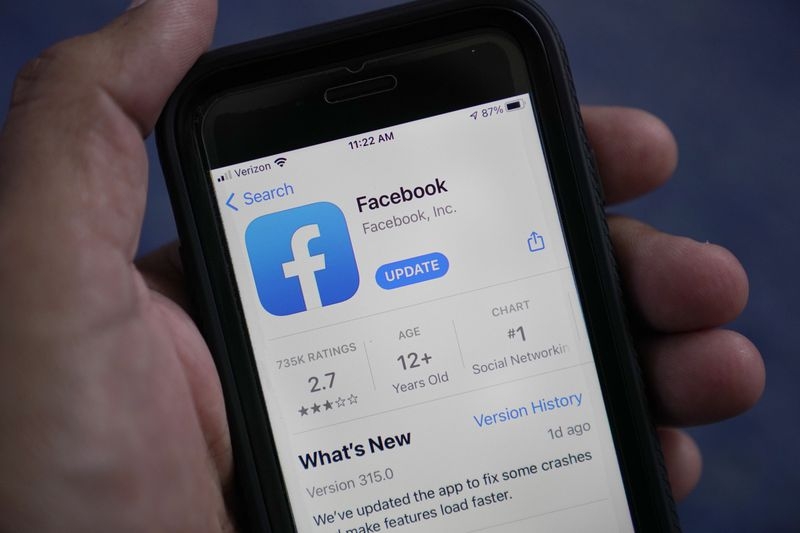 Was COVID-19 Made In China Lab? Facebook Lifts 'Ban on posts' Was COVID-19 Made In China Lab? Facebook Lifts 'Ban on posts' Was COVID-19 Made In China Lab? Facebook announced it will no longer remove claims addressing the possible origins of the coronavirus and whether it ... |
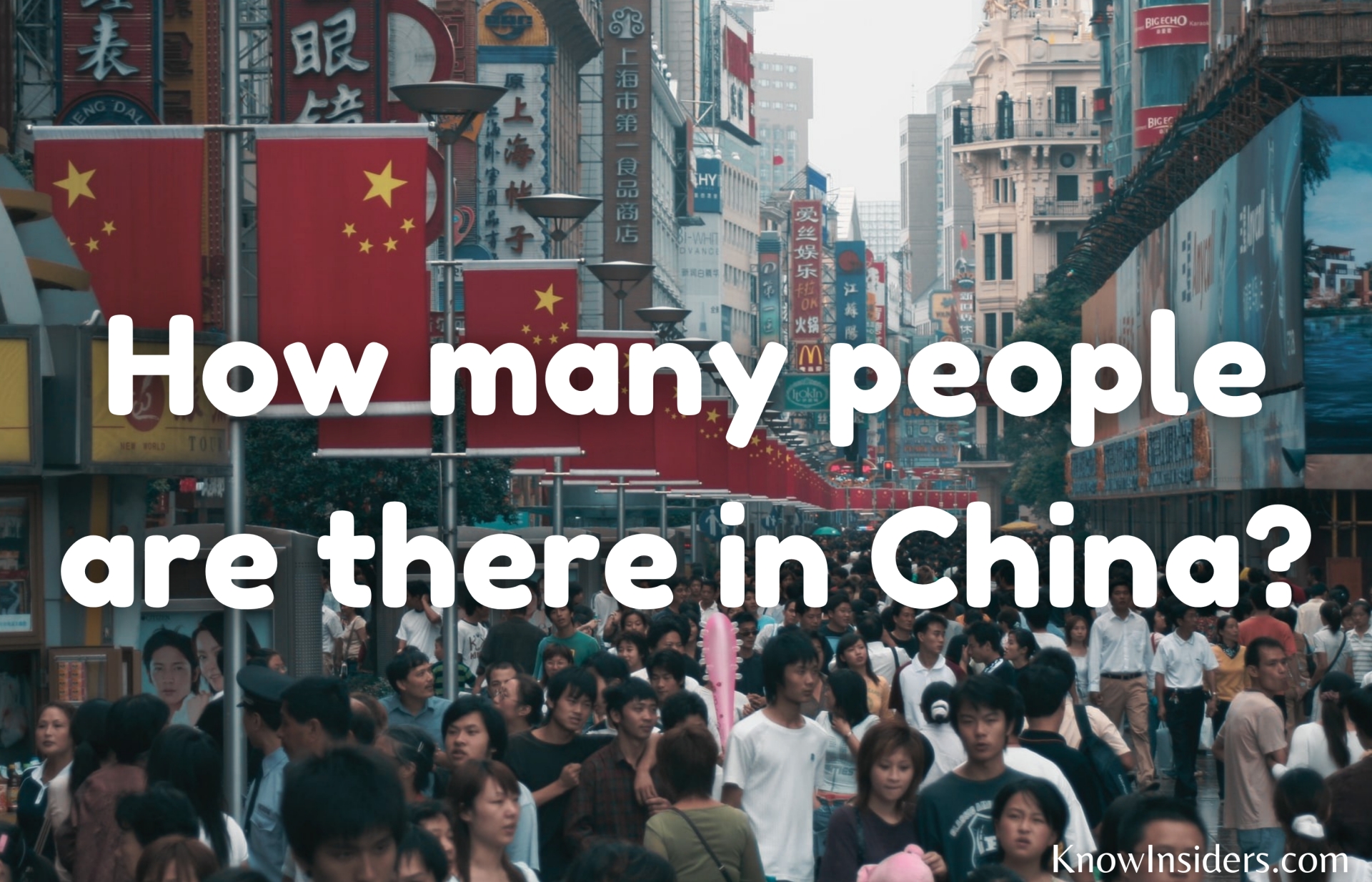 How Many People Are There in China - Updated Population How Many People Are There in China - Updated Population China population has more than doubled since the 1950s. The country was the first in the world to hit one billion people in 1980. Check ... |
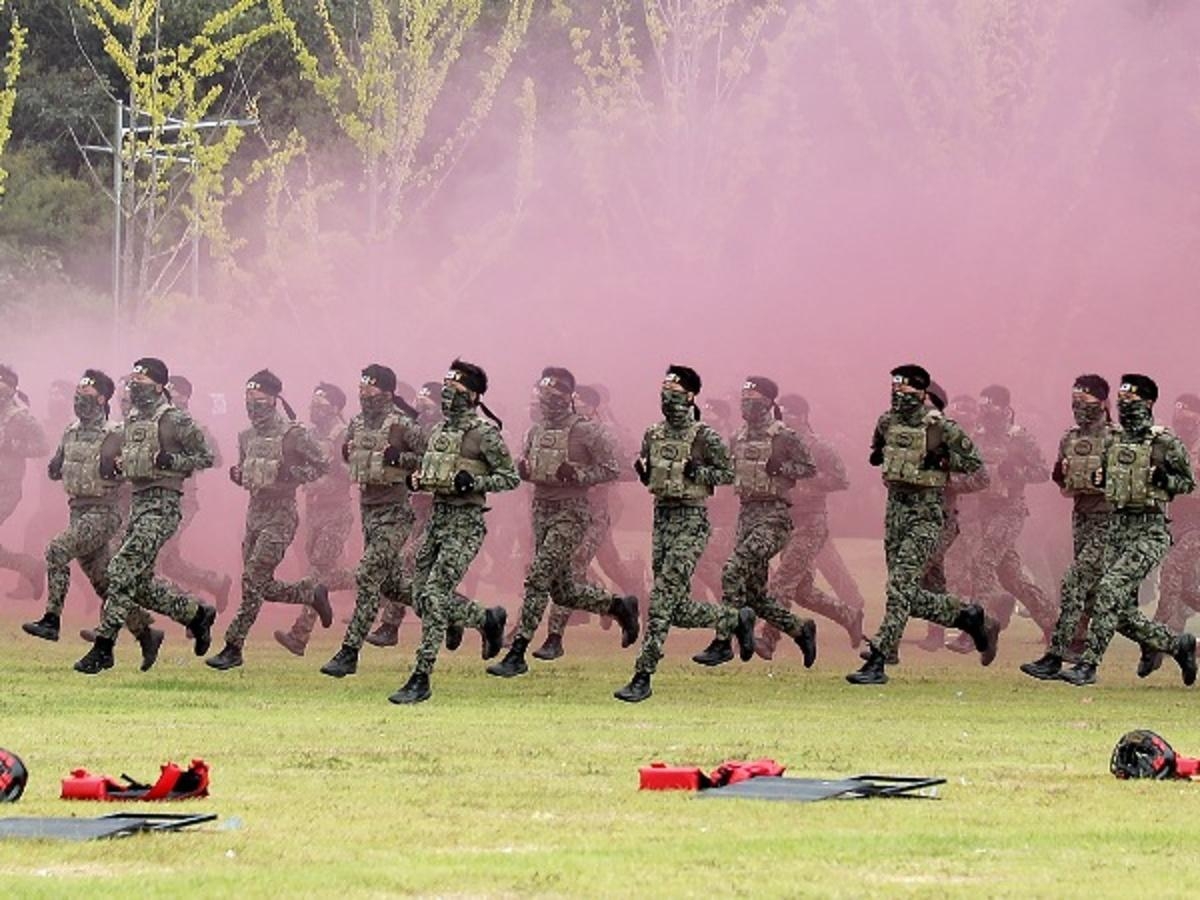 Top 9 Most Powerful Militaries In The World - Updated Top 9 Most Powerful Militaries In The World - Updated What are the most powerful militaries in the world? It’s an outwardly simple question that hides a remarkable degree of complexity. We have a ... |

